In his Lord Trenchard Memorial Lecture delivered at the Royal United Services Institute (RUSI) on Remembrance Day, Air Chief Marshal (ACM) Sir Rich Knighton, Chief of the Air Staff, highlighted the Royal Air Force’s evolving strategy to counter emerging threats.
His speech focused on the need for advanced capabilities, including the Global Combat Air Programme (GCAP) and Autonomous Collaborative Platforms (ACPs), as essential components for the RAF’s future air dominance.
“As the RAF continues to evolve, we must build an air force that can fly, fight, and win today, tomorrow, and together,” said ACM Knighton. He outlined the importance of GCAP and ACPs in ensuring the RAF’s ability to respond to increasingly complex global threats, particularly from adversaries such as Russia and China.
GCAP, Knighton explained, is designed to complement existing assets like the F-35 and Typhoon, while ACPs—also known as Collaborative Combat Aircraft (CCAs)—will play a crucial role in enhancing the lethality and survivability of crewed platforms.
“GCAP is very deliberately being designed to complement and enhance the capabilities of F-35, not replace it,” he stated, underscoring the programme’s importance in modernising the UK’s combat air capabilities.
ACMs also emphasised the need for speed in adapting to new technological advancements in the air domain, stating that the RAF must not only keep up with but also lead in developing new air combat systems. “We need to be able to adapt and innovate at pace. The ACPs will be a critical part of an effective combat air system,” he said, acknowledging that nations like the US, Australia, and France are already making significant investments in these capabilities.
The introduction of ACPs marks a significant shift towards unmanned systems designed to work in collaboration with manned aircraft. These systems are expected to deliver the combat mass necessary for effective air combat in an era of highly capable, long-range threats. “Our ability to integrate ACPs with manned aircraft will provide the most cost-effective way of delivering the combat mass we will need to win against an ever-improving enemy,” ACM Knighton added.
In his address, Knighton also reiterated the RAF’s commitment to maintaining air superiority, which he described as “vital” to NATO’s operational strategy. This focus on air dominance is critical to countering adversary advances, as recent developments in stealth technologies and long-range air-to-air missiles have made controlling the skies more challenging.
“Air superiority…has been a vital aspect of conflict since 1945. With it, anything is possible; without it, everything is dangerous,” Knighton quoted General David Petraeus, reinforcing the centrality of air control to modern warfare.
In closing, ACM Knighton made it clear that the RAF’s strategy for the coming decades hinges on timely adaptation, strategic investments in both GCAP and ACPs, and the continued development of air and missile defence systems. As global security dynamics continue to evolve, the RAF’s ability to innovate and stay ahead of emerging threats will be key to ensuring the UK’s defence capabilities remain robust and agile.
“Deterrence matters now more than ever. The RAF will remain at the forefront of ensuring our nation’s security through decisive air power,” Knighton concluded.
At the UK Defence Journal, we aim to deliver accurate and timely news on defence matters. We rely on the support of readers like you to maintain our independence and high-quality journalism. Please consider making a one-off donation to help us continue our work. Click here to donate. Thank you for your support!


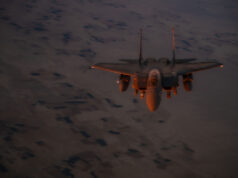
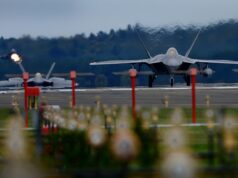
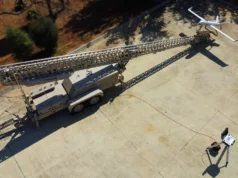

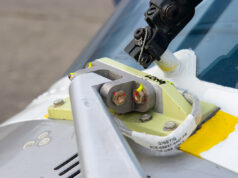
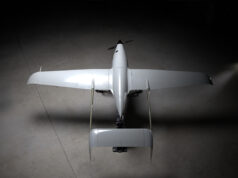
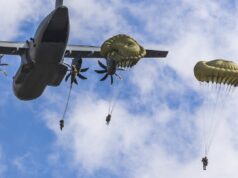
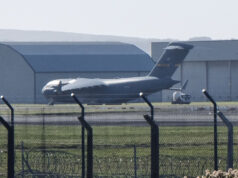

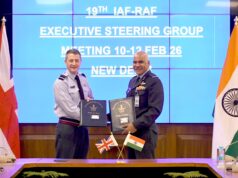

You know when a SDSR is coming when all these types of speeches come out, which are along the lines of my service needs the money not the others.
Agreed. The problem is every service needs the money due to the chronic under investment over the past decades.
They do but with a limited budget and for sure continual budget constraints, it’s frustrating that we still consider procurement from an individual services perspective rather than a whole of what would be needed for a war.
Stalmer and Reeves have no choice now but to get to 2.5% ASAP. 17 Billion is less than 9% of the NHS budget.
I do wonder wether we should concentrate on building up naval power and keeping the army and raf for home defence . Just a thought
In France, we are in the same spot. Nuclear deterrence is priority number one. Combat drone and collaborative tactics with them is priority number two. That’s why we invest a lot on Rafale F5 and the combat drones. Then will come the SCAF. But UK has an interesting partnership approach. We cannot fully go this way since national deterrence is at stake with air vector being part of it. Though you will ultimately have a more diverse fleet of plateforme with complementing performances. It is interesting as well.
Note that we will, with the common missile and A321 XLR regain a bomber fleet. Not B21, but a cheaper option. Enough to sink a submarine, an enemy fleet or operate over desert areas. For 100 M€ each. I believe it could be interesting to talk together about this, since may be you will look for medium to heavy air power.
Can you expand on the A321 XLR in military role it’s not something I am familiar with.
had a look its the airbus MPA option. Presumably could be re-purposed as a stormshadow truck too
The first objective is to replace the Atlantic 2 fleet. So maritime patrol, sono boy, torpedoes and Dam are to be integrated. The introduction of FMAN/FMC is also part of it. So naval shipping strikes are also scheduled. The 3rd role is bombing with guided precision bombs, since Atlantic did carry such missions in Africa in uncontested airspace. Given the capabilities (range, speed) of FMAN / FMC and the volume one can put aboard a A321, I can easily imagine large fleet attacks being carried out by this mean, since anyway Rafale will be too few, with limited range and limited missile capabilities. A squadron of A321 would be a significant threat to any fleet. On a land engagement, it would mostly depend on capabilities of FMAN / FMC (Range). One of the pending question is air refueling. The selection process was between Falcon 10x and A321 XLR. The second one is leading. I think Patmar is the primary objective. Though, in the light of the threat, it is easy to imagine lots of ideas are in the background with this selection since Europeans can build 60 planes of this type per month. If thing go wrong, it would be very easy to triple the aire fleet from 185 jet fighters to 500 planes in 6 months with plenty of pilotes and technicians already trained. The non selection of Dassault 10X is most likely due to the extreme military ramp up we could produce together in no time. By the way, drones are also going to be integrated in this plane. Just imagine the potential of deterrence… Something we already mass produce, something we can use to fight together…
It will be a small B52 or TU 95, albeit with less payload and capabilities… But still. I hope such a program could make sense for UK or other European nations at some point.
Can you expand on the A321 XLR in military role it’s not something I am familiar with. Is it a missile truck?
“Then will come the SCAF”
Oh I doubt it
I think it will.
Can you imagine the level of public pressure in France by the late 2040s, when Germany has 5th gen fighters and Britain and Italy have both 5th and 6th gen if France was still trying to stick yet another marketing plus sign after the 60 year old 4th gen (+++) Rafales? Dassault will absolutely produce something and France will absolutely buy them. Time will tell about Germany and Spain.
There is no way that France will let Dassault die. If the drones get much better than crewed aircraft i think it is possible to bypass SCAF but Dassault will be the drone builder.
I don’t know either, though Germany and Spain are putting now the right investment on Typhoon, with a drone. If not, it would have meant that they were looking for something else. We’ll see what happens. The concept of the flying machine for the SCAF is still unclear. I am not sure it will be like the Tempest (what a name, brings back good memories 😄). Time will tell what engines can do by the time it comes to design.
A navy without air cover, what could possibly go wrong. Certainly not a scenario that has worked well since mid war. I wouldn’t want to test the theory that philosophy has fundamentally changed anytime soon.
Agree – control the air control the battlefield
The navy would have air cover , we have 2 carriers and as part of an expanded navy they should have full airwings on board both carriers , along with a proper escort fleet providing air defence .
Don’t expect anything Gucci, it’ll be off the shelf from radio shack at an inflated price.
There is also another reason for the service brass making these speeches: one is the Defence Review and the other a post-US NATO. If as feared Trump does reduce the US-NATO footprint in Europe in preference to concentrating on InoChina then the Treasury is going to have to spend considerably more on UK defence. The current fiscal measures introduced by the Labour Government will need to be revisited with even more unpopular tax measures piled on top of the last budget.
Haha, UK was destroying the economy already under the conservatives that conserve nothing with huge tax levels, Labour as expected just kicked it even more to the precipice.
Utter rubbish!!!
Was that a manic laugh. 😱
Believe you have read the real leaves correctly. 🎂
Sorry, wrong emoji. 👍
Son of a bitch, autocorrect changed tea to real, even after designation.
If the government is willing ( quite frankly they have no choice) to funded it like every other service then things might go well
And also we spend the money well
I get the feeling the government need a nasty shock. An act of serious aggression towards the UK/Nato. It really is all “jaw jaw”.
Well once Trump has sorted out Ukraine so Musk can load them up with Starlink for a nice profit I’m sure Russia will provide your wish or maybe they will just pay one of their lackeys todo it for them and dare us to respond. It’s pretty much a light version of what they had planned had they really taken UK and Moldova in a few days. Probably less capable now but angrier and potentially a US conveniently looking the other way will be a hopeful bonus for them when they do… as long as they leave Trump’s golf courses alone.
Hmmm…NGAD paused for a requirements review. UK slated for a SDR in CY25, and GCAP will develop a demonstrator by CY27. Wonder whether there will be language in SDR text re additional future partners w/in GCAP? 🤔😉
I’m not sure we’d want Uncle Sugar involved.
USA would simply take over, by berating everyone into submission with their cheque book, and as it isn’t AUKUS: ITAR would apply so killing exports and everything else!
Ahh, perhaps ye have not yet comprehendedith the role of the sovereign, doling out alms to whomsoever chosen, even obstreperous colonists. Or mayhaps a review of the colloquially stated version of the Golden Rule would be in order: Those who holdith the gold, makeith the rules (aka, one functioning demonstrator trumps any number of ongoing requirements reviews). 🤔😉
ITAR revisions/exemptions for both UK and OZ are either in process or already completed. If iTAR exemptions are confined to the AUKUS domain, rhe Son of GCAP/NGAD programme magically transforms into an AUKUS Pillar Ii initiative.
Australian GCAP might well be a thing given that the Ozzies are buying our submarines and also potentially Japanese frigates already.
I doubt that is in the near future, however, they have already gone in for F35.
A definite possibility, not certain anyone can accurately predict future developments in the I-P.
I’m also reading today of a suggestion Trump might “veto” the deal to hand Diego Garcia over to Mauritius.
Good. I thought it to be a bad idea to start with.
ICJ ruled UK occupation illegal. Presumably UK are champions of international rule of law. Mauritius is politically a good option. Closest land to the chain is actually Somalia. …not sure we want them staking a claim. Trump, the great negotiator, can negotiate his own 500 year lease to kick in at the end of the 99 years
I don’t agree regards Mauritius, with their links to China. No thank you.
I also have in mind the marine protected zone that will no doubt be stripped the moment Mauritius take over.
International rule of law? Like when we attacked Iraq? When it suits, when it suits.
Lets see.
There is no legitimate reason to be there. Blair and Bush should have been prosecuted for GW2….or at least sued for damages for lives lost. Regarding Mauritius..strong democracy..up to them who they elect and who they form alliances with. Better to work with them than against them and loose the international debate. Less likely to drive them to PRC.
Return it the rightful owners. The native Chargos. Everyone else is an invader/ colonist.
Its definitely a bad idea and makes no sense that an island in the Indian Ocean is in the hands of a superpower thousands of km to the west. It belongs to the Chargos natives. Everyone else is an invader/ colonist.
What advantages do manned fighters provide that are not met by long range missiles and unmanned drones? Shouldn’t we be focusing scarce development funds on the latter?
The main advantage manned fighters have is that they can be useful short of a full war, for example in the air intercept and escort role. Trying to do that using a missile would ruffle some feathers, I imagine!
Fighters are also generally more flexible than drones. They can operate in a comms jamming environment without the legal and ethical issues associated with autonomous killing machines. A drone cannot “check” imagery or data with a human without revealing its position to a certain extent, whereas human pilots are trained to differentiate between civilians and targets.
To replace manned fighters with drones would require high end AI equipped drones.
The question is just how intelligent is artificial intelligence? It is a subject surrounded by much hype and even more smoke and mirrors, especially defence related AI. I am no expert but I have picked up a few little bits a pieces that suggest that AI is more about the artificial than the intelligence at the moment at least that is how I read it.
If we think about intelligence as have two main facets to simplify things, the ability to make decisions and the ability to learn. (I apologise to any experts reading this…)
The latter facet means that you can train an AI system to make decisions based on certain criteria. Seems simple enough, but there are two potential issues with the learning process as I understand stand it. Firstly, it is possible to teach an AI system to make decisions, lock it down as it were and then set off doing the same decision making tasks over and over again. Production line kind of stuff. This is all fine and dandy, but it is apparently impossible to see ‘inside’ the decision process of an AI system and understand how it is making the decisions. It could be coming up with the ‘right’ answer the ‘wrong’ way i.e. it might pick black objects as you wanted but in fact it may be picking out curved black objects because the teaching sample was flawed or presented in a manner that allowed this lesson to be learnt. It only becomes clear when you realise that straight black objects are getting rejected…
The next issue with learning is if you allow the AI to learn ‘on the job’, which is my understanding of machine learning. It can learn the wrong lessons from experience and apparently it can go off piste quite suddenly and once the wrong lesson is learnt you have to start again because you cannot get inside the learnt lessons to correct them! There was something mentioned recently about a US drone program running into this kind of issue. It is possibly the main reason why so many responsible military forces are holding back with armed drones until they can develop the ‘rules’ and processes to keep armed drones on the straight and narrow… A fleet of linked drones going rogue would probably count as a really bad day at the office.
Then there is the intelligence question. Just how intelligent are these systems. There has been much hype around auto-writing systems recently but it seems many of them write perfectly good English but the ‘facts’ are wrong because the AI has no ‘understanding’ fo the meaning of the words it is writing. It makes decisions based on explicit lessons learnt i.e. linguistic structure. Humans have understanding we can visualise the impact of decisions impart because of lived experience which we use ‘instinctively’. From what I have read AI seems to struggle with the lived experience stuff – hardly surprising because it ain’t aware…
Overall my understanding is that AI is great at handling huge amounts of data and doing stuff frighteningly quickly but it still is not aware so cannot draw on lived experience to check its’ own decisions – not sure if it can reason with itself. So not that intelligent really…
Sorry this is a bit long winded way of saying I don’t think AI matches human beings on the intelligence scale and both are capable making stupid mistakes – just that AI can make them more quickly than humans.
I would also say that this is my interpretation of stuff I have read over the years. So probably rather simplistic but I hope it at least helps a bit.
Cheers CR
Thanks for the comprehensive responses, much appreciated. Although unmanned solutions may not be suitable for all missions, they are no doubt suitable for basic combat missions such as delivery of munitions to the battle or stopping an adversary doing the same. I note the US has recently paused or put back next gen manned fighter development in the US (both USN and USAF). Also recently their next gen manned attack sub SSN-X has been deferred until the 2040’s. Could the growing utility of unmanned platforms be part of those decisions?
“…AI is more about the artificial than the intelligence at the moment…” 😁👍